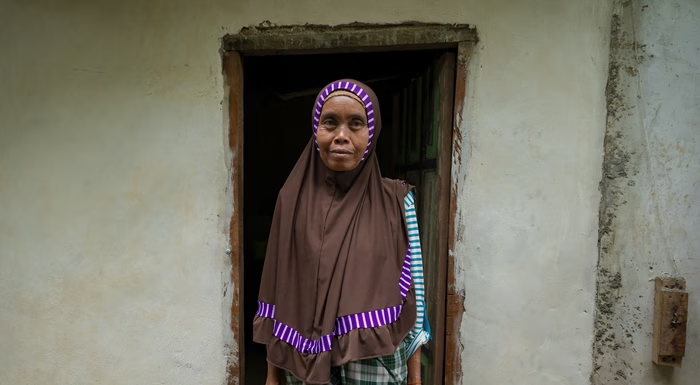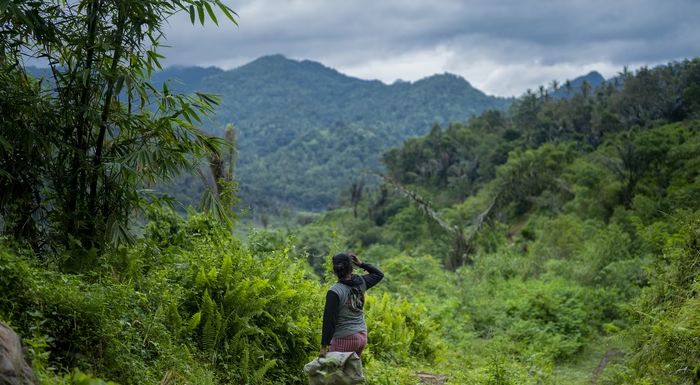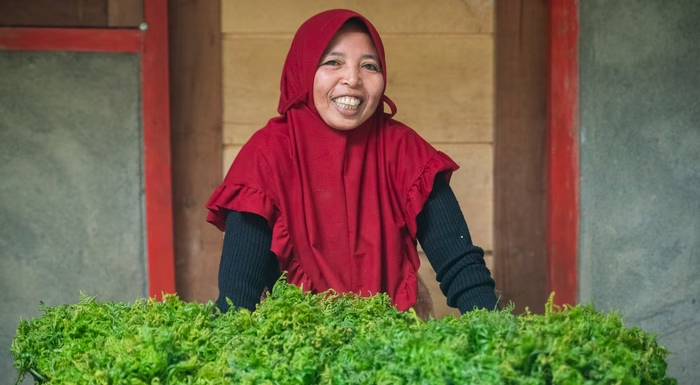Juleha
Juleha, 37, lives with her husband and three-year-old son in Jepara, Central Java, Indonesia. Like many of the residents of this coastal town, the family relies on her husband’s income as a fisherman. To supplement his limited earnings, Juleha works in a nearby fabric factory.
The family of three lives in a simple house that Juleha and her husband slowly built with their earnings. Despite having lived there for more than a year, the family still did not have a water connection. To cope, the family purchased their water for cooking and bathing from private vendors, spending up to 50,000 Indonesia rupiahs, or half of Juleha’s weekly salary, on water.
Now, this is not the case. Water.org is working with a local water utility and microfinance institution to ensure that families like Juleha’s have access to affordable financing options to cover costs such as a water connection or toilet.
Water.org made possible for people like Juleha and her husband small, affordable loans to cover the up-front costs associated with connecting to their local water utility’s pipelines.
The family is now repaying the loan in six affordable monthly installments. As they repay the loan, the money is being lent out to another family in need of assistance with the upfront costs. Each loan amount and repayment plan can be tailored to each clients’ needs and ability to repay.
Today, the family’s water bill comes to only 23,000 Indonesian rupiahs per month — a fraction of what they used to pay. In addition to saving the family money, they enjoy the convenience of water in their home and no longer having to carry the purchased water long distances.
Juleha and her husband aren’t stopping there. Juleha wants to take out another WaterCredit loan to help cover the costs associated with installing a toilet for the family. While the toilet itself will be free through a government program, the installation and walls are not. Juleha will use her second WaterCredit loan to ensure her family has a safe, private place to go to the bathroom.
This story was made possible with support from the Jochnick Foundation.


